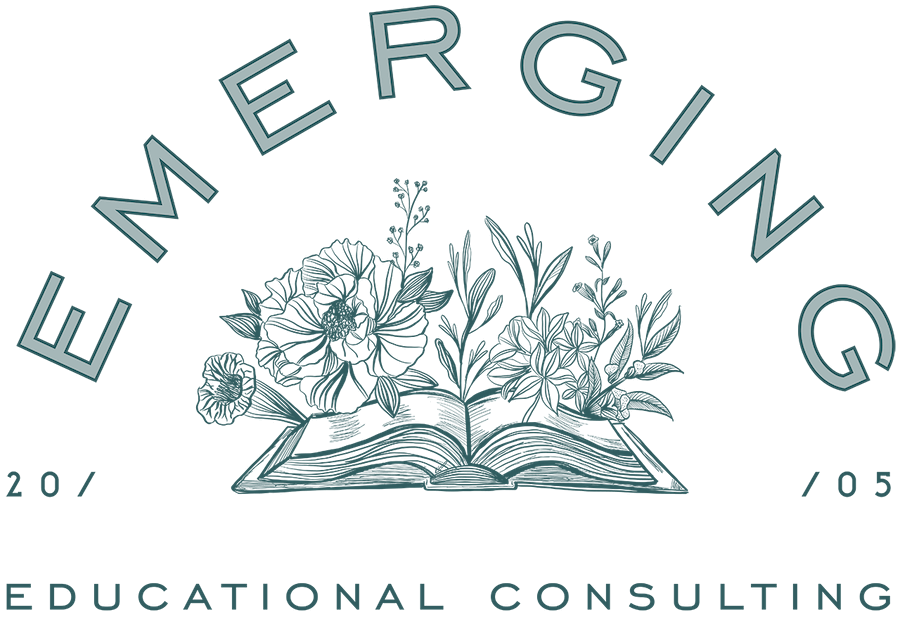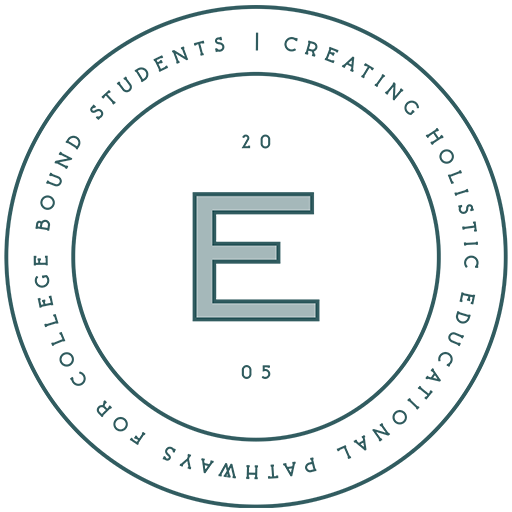Parents often ask, “What are colleges really looking for?”
It’s an honest question — and the answer is simpler, and deeper, than most people expect. Yes, grades, rigor, and recommendations matter. But what makes an application truly memorable is something far less measurable: curiosity.
At Emerging, we call that intellectual vitality — the spark that fuels learning for its own sake. It’s what happens when a student lights up about an idea, dives into a project beyond the assignment, or keeps asking questions long after class ends.
What Is Intellectual Vitality?
Intellectual vitality is the energy behind curiosity, creativity, and lifelong learning. It’s what drives students to think independently, explore unfamiliar subjects, and connect ideas in unexpected ways.
Former Stanford admissions officer Dr. Irena Smith said it best:
“Intellectual vitality must ooze from the file.”
That spark — curiosity, engagement, creativity — is what distinguishes a memorable application from one that’s merely impressive.
What Colleges Say They’re Looking For
Across the country, admissions leaders describe their ideal students in strikingly similar ways: curious, authentic, and eager to learn.
“We’re looking for students who will create a unique, diverse community at BU… students who are passionate about a single pursuit or exploring a wide variety of subjects.”
— Boston University (BU Admissions)
“We want to find the ambitious and the curious… We like students who make intelligent and interesting mistakes, who understand that only in risking failure do we become stronger, better, and smarter.”
— Duke University (Duke Admissions)
“Students often focus on getting in rather than representing themselves authentically… In the strongest applications we read, a student’s genuine voice stands out.”
— Stanford University (Stanford Admissions)
“I worry that we as admissions officers may have unintentionally transmitted incorrect messages… How do we sort out the genuine student from the image manufactured for admissions purposes? We look for credibility and, ultimately, genuineness.”
— Bruce Poch, Former Dean of Admission, Pomona College
“Start with yourself, not the college. Examine your academic interests, career goals, financial resources, and likes and dislikes… Spend time exploring those interests.”
— University of Virginia (UVA Admissions)
Each of these institutions highlights the same essential quality: students who are authentic, intellectually alive, and eager to learn.
How Students Can Show What Colleges Value
- Let curiosity lead.
Encourage your teen to follow genuine interests—even the ones that fall outside a syllabus. Curiosity often begins with a question that turns into a project or a purpose.
- Engage broadly.
Books, podcasts, and documentaries across disciplines teach students to connect dots and think expansively.
- Reflect regularly.
At Emerging, we ask: “What did you learn this week that changed how you see the world?” Reflection turns learning into insight and shows colleges a mind that grows through experience.
- Create and share.
When students make something — a blog, an experiment, a song — they transform curiosity into contribution.
- Stay authentic.
Admissions officers respond to truth. Students who express who they are, not who they think they should be, stand out immediately.
How Intellectual Vitality Appears in College Applications
You can see intellectual vitality in every part of a strong application:
- Essays that explore ideas rather than summarize achievements.
- Projects sparked by a “what if” question.
- Recommendations describing a student’s enthusiasm for learning.
- Interviews where conversation feels alive and spontaneous.
Readers can sense when a student genuinely loves learning — and that spark lingers.
What Does This Mean for the ADHD Brain?
For many students with ADHD, curiosity and creativity aren’t just personality traits — they’re part of how the brain engages with the world. When a topic truly matters, the ADHD brain can enter hyperfocus: an intense, sustained form of attention that enables deep learning and innovation (Cleveland Clinic).
Clinicians describe hyperfocus as the “flip side” of inattention — ADHD often involves interest-based attention, not an absence of it (Healthline). Interest acts as the ignition switch for engagement, helping students sustain motivation when they care deeply about a topic.
Studies also suggest that ADHD is linked with divergent thinking, creativity, and cognitive dynamism — all hallmarks of intellectual vitality (CHADD.org). Neuroscience reviews connect these traits to dopamine regulation, which helps explain why interest-driven tasks can unlock strong performance (Simply Psychology).
With the right scaffolds — executive-function strategies, structure, and reflection — students with ADHD can channel this energy into sustained curiosity and creativity. These are the very strengths colleges value most.
At Emerging, we help students understand how their brains work and frame those strengths authentically. When curiosity meets purpose, intellectual vitality shines — and admissions officers take notice.
How Parents Can Nurture Curiosity
Curiosity thrives in homes where learning is valued and modeled.
- Share something new you’ve discovered.
- Ask open-ended questions like “What surprised you today?”
- Celebrate exploration and effort as much as results.
- Talk about mistakes as part of the learning process.
When curiosity becomes a family habit, students see learning as a lifelong adventure, not a race for perfection.
Key Takeaways
- Colleges look for students who are curious, authentic, and engaged.
- Intellectual vitality — a love of learning — differentiates strong applicants.
- Admissions officers value depth and genuine voice over polish.
- Students with ADHD often embody these traits naturally through creativity and hyperfocus.
- Parents can model curiosity and make learning part of everyday life.
Related Reading
Finding their way, Supporting ADHD Brain in the College Search
College Planning for the Curious Student
Final Thought
At Emerging, we believe curiosity is and love of learning matters!
When students learn for the joy of discovery, they don’t just prepare for college — they prepare for a lifetime of curiosity, creativity, and growth.




